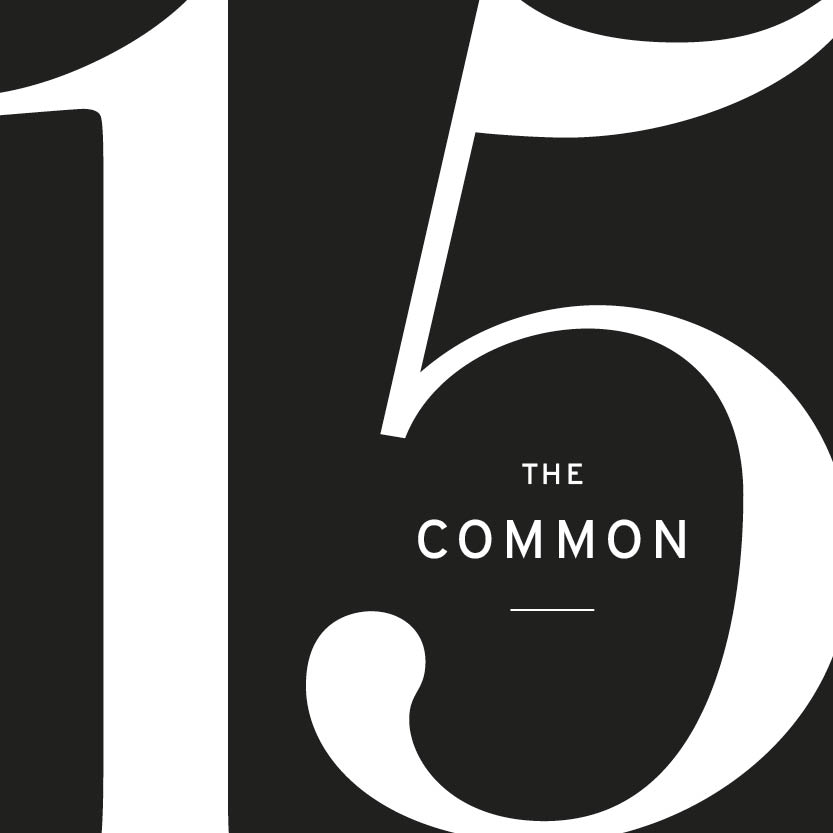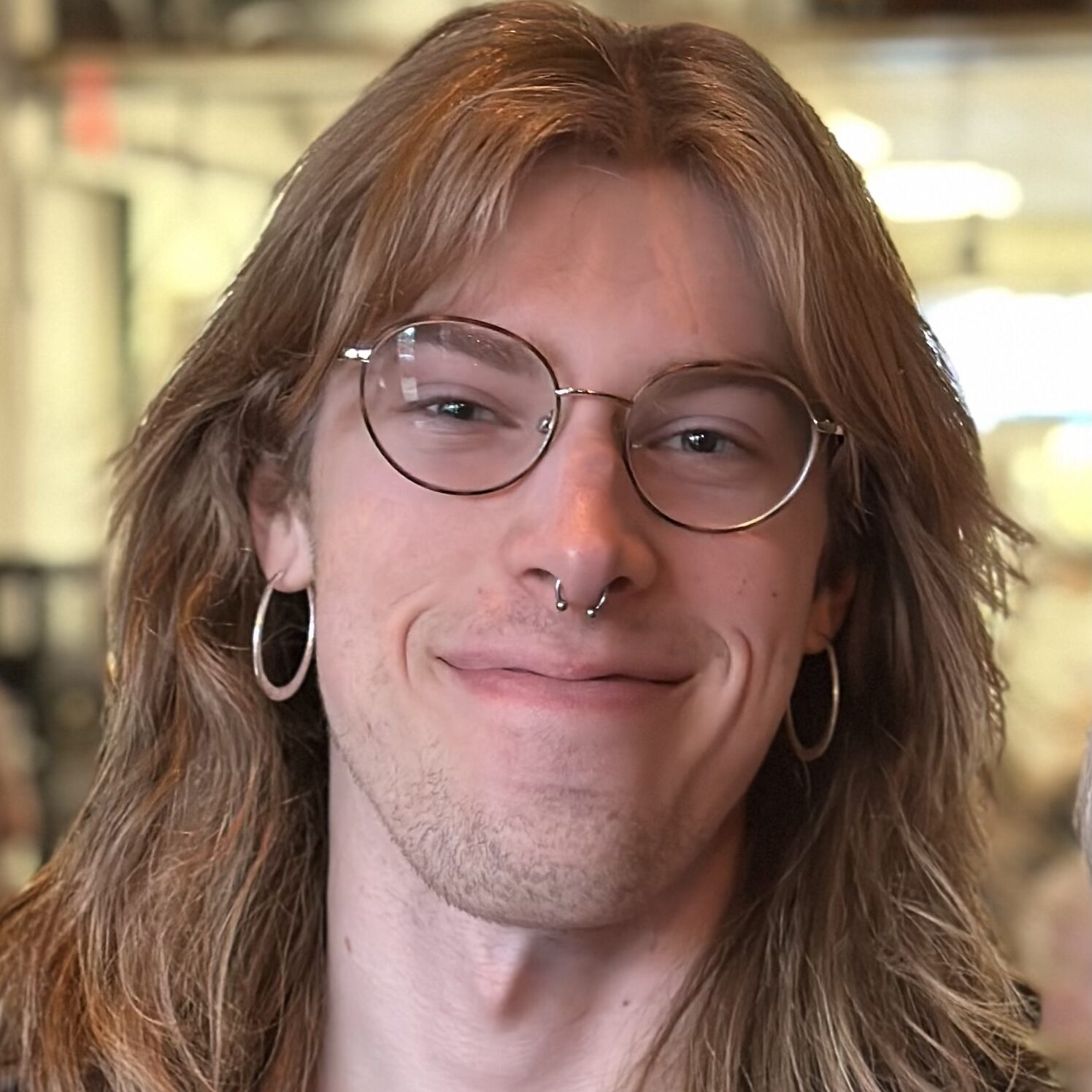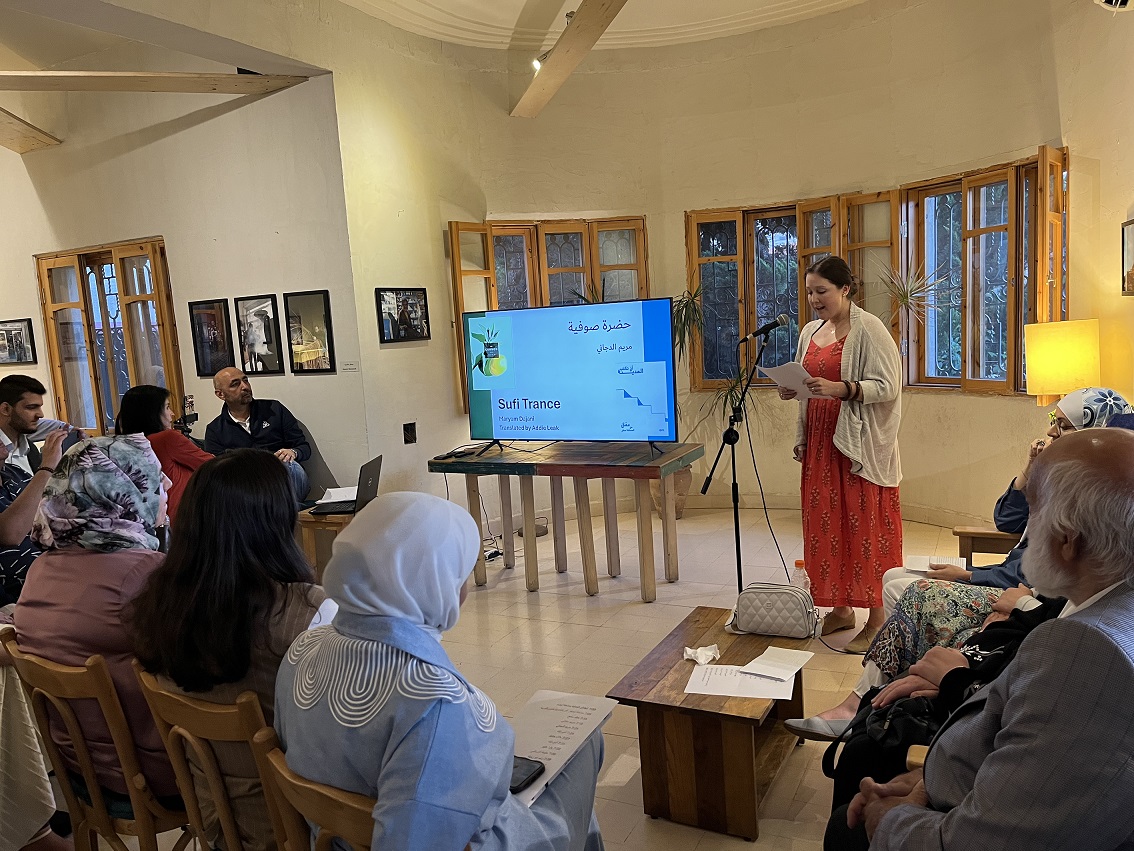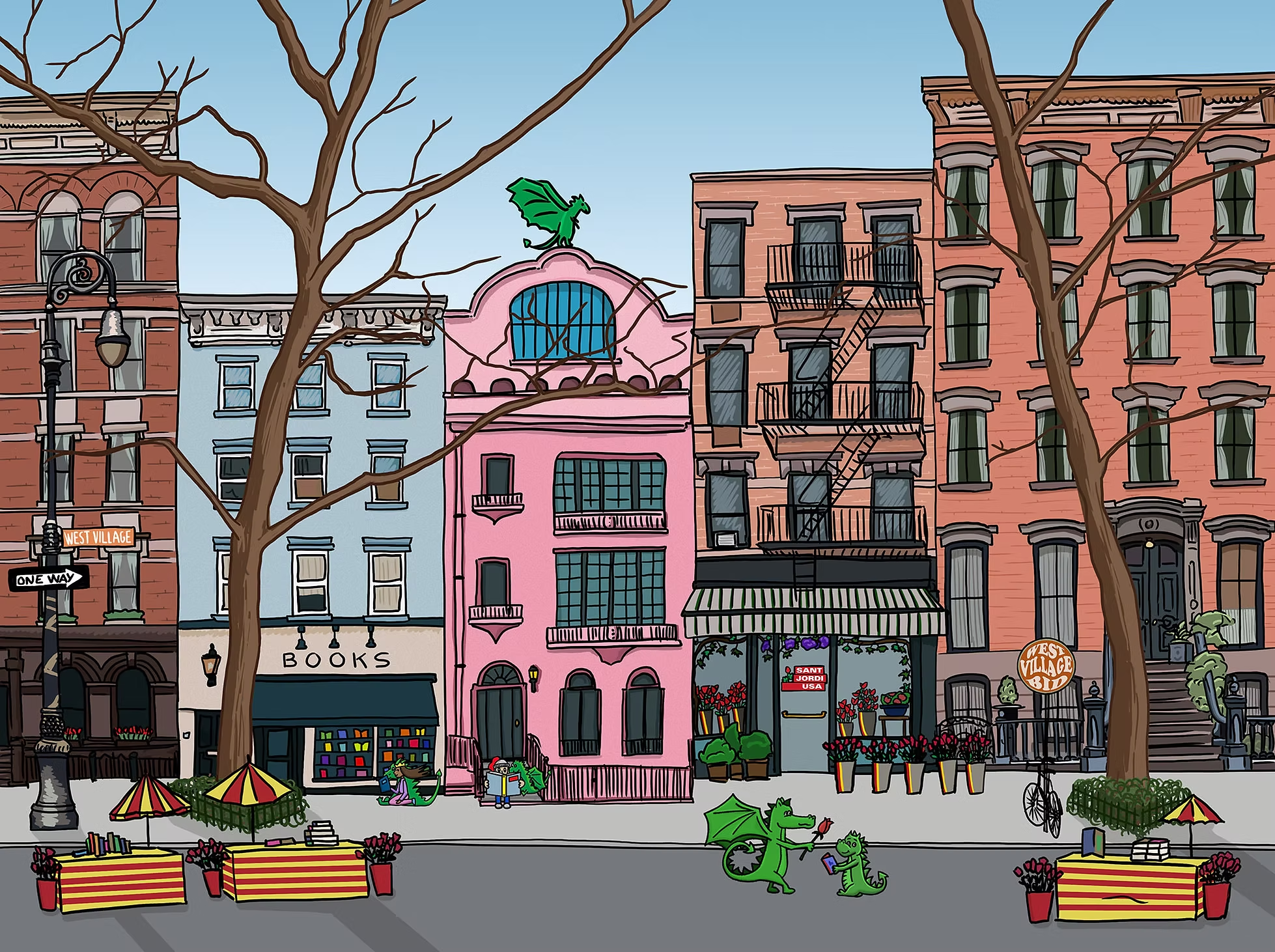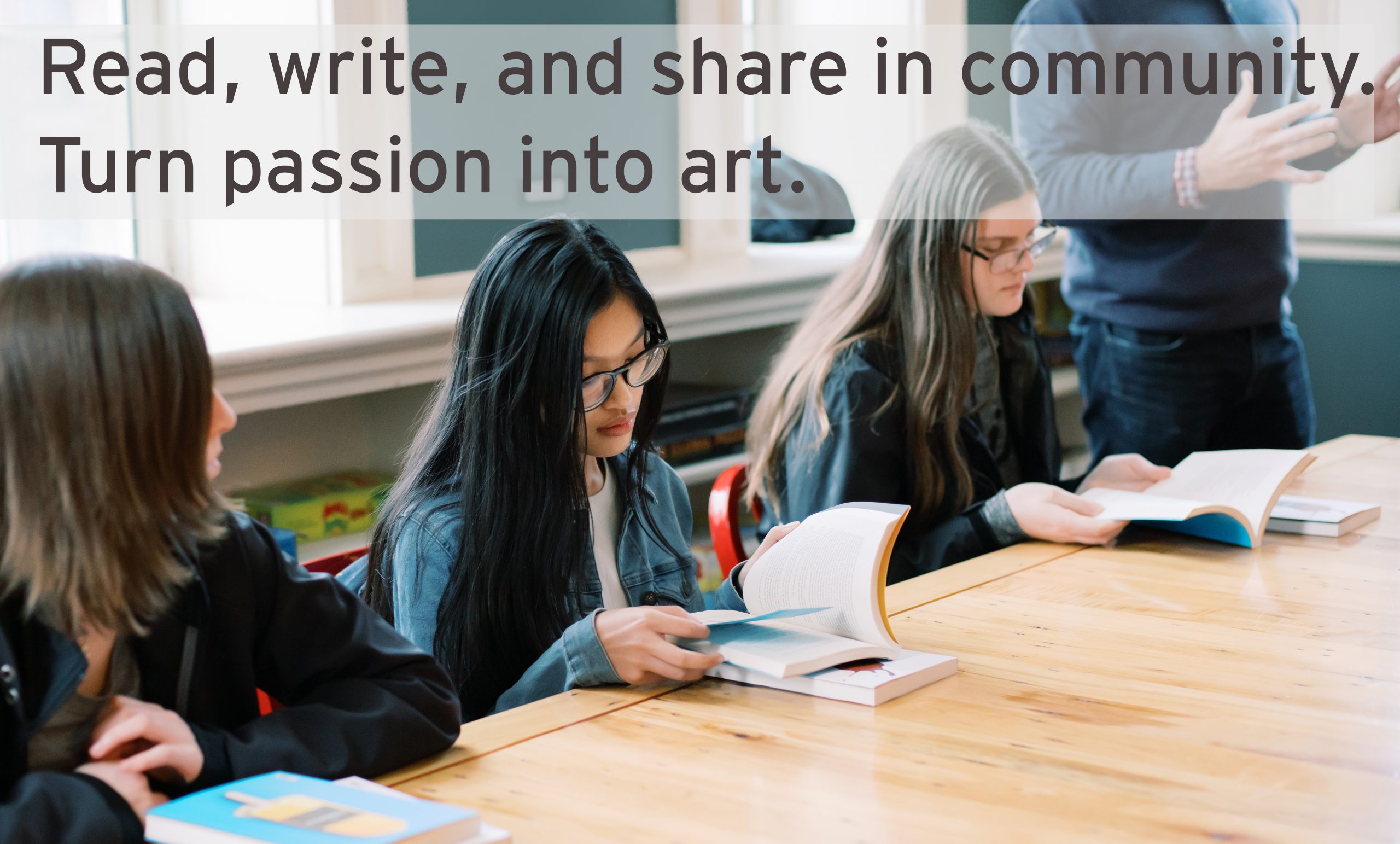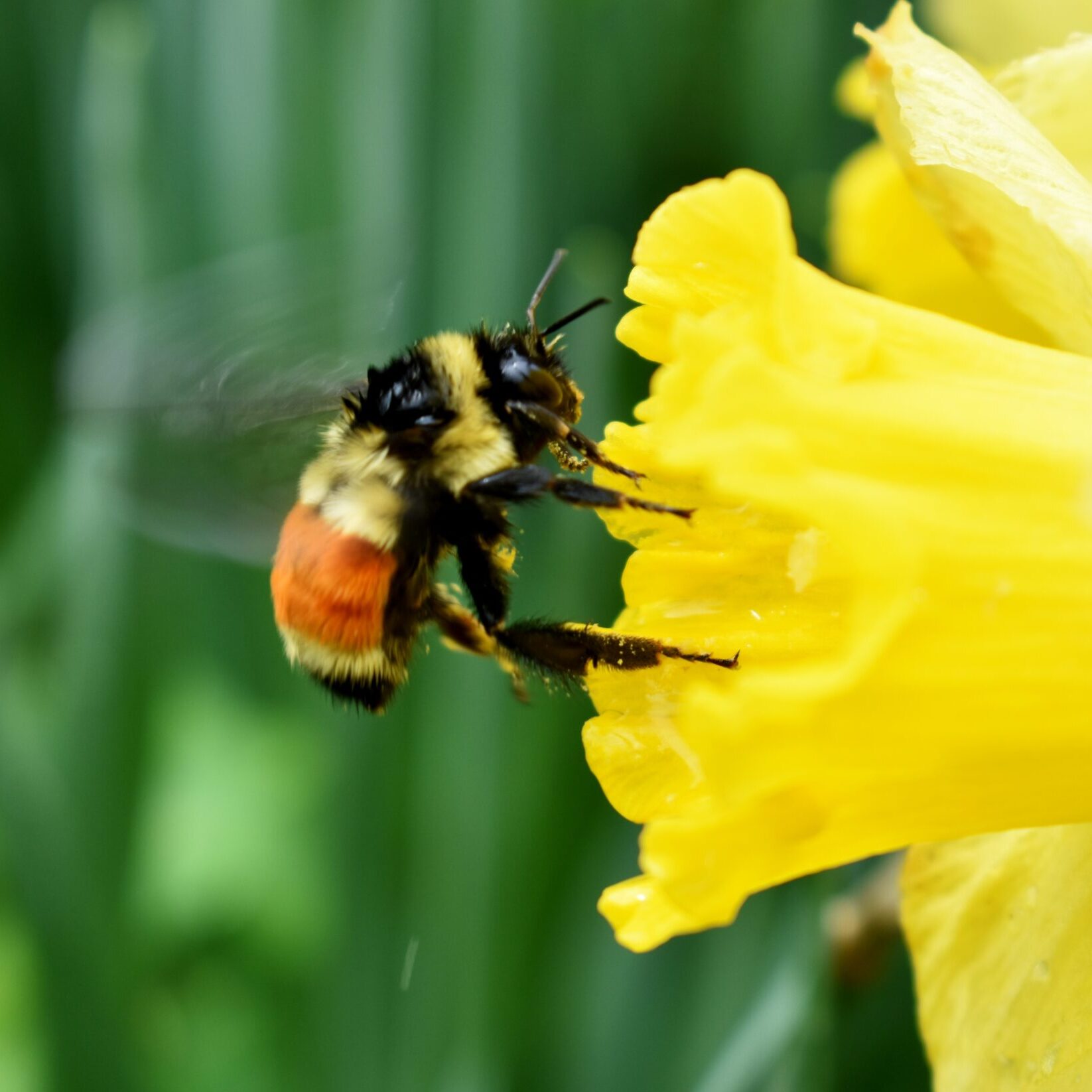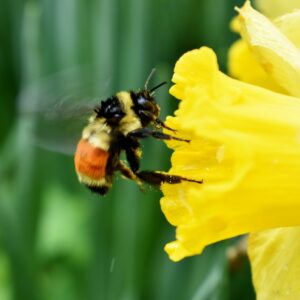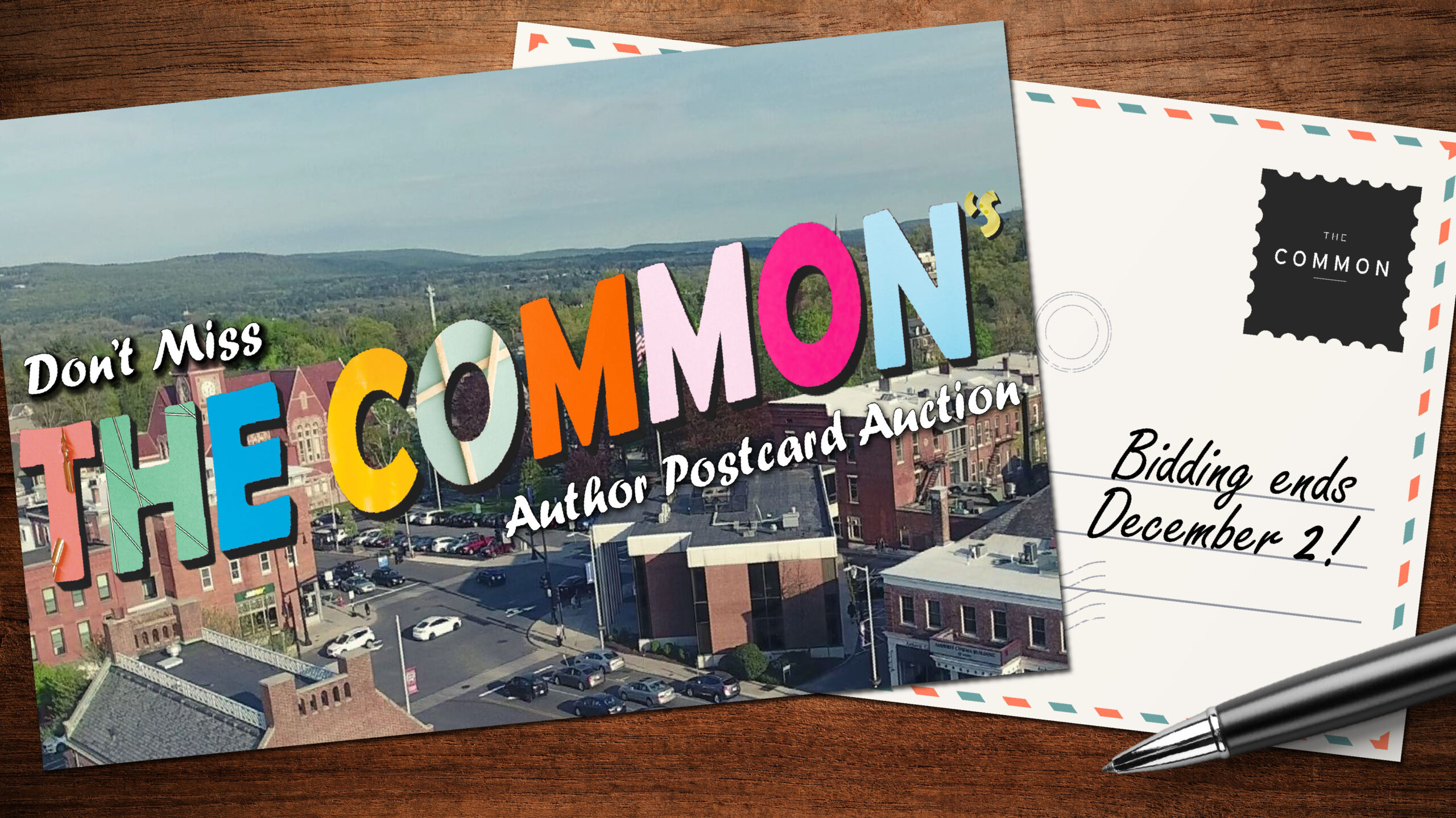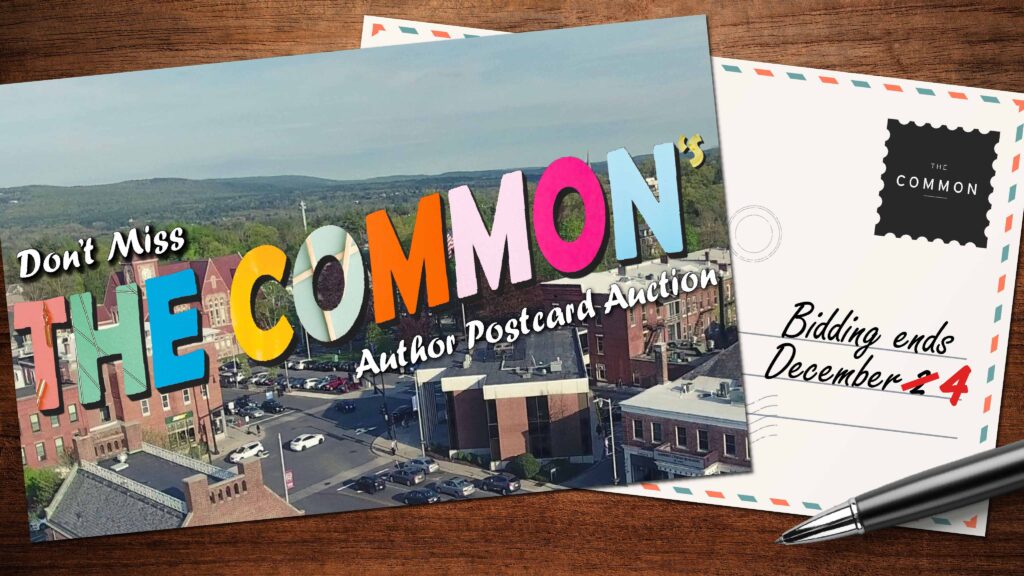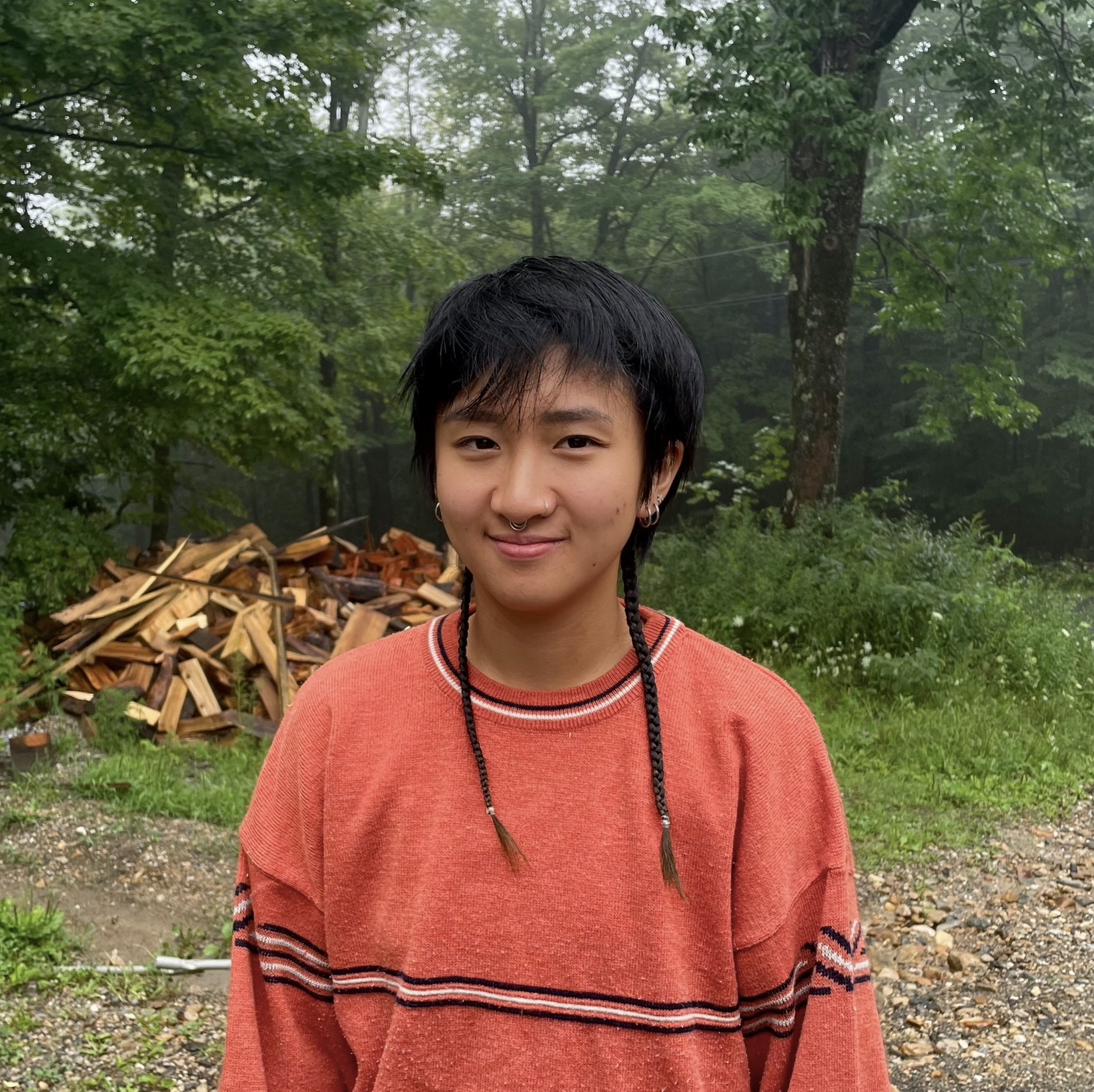We at The Common are pleased to announce the receipt of our seventh award from the Amazon Literary Partnership’s Literary Magazine Fund.
All posts tagged: news
The Common Magazine Announces 2025-26 David Applefield ’78 Fellow
(Amherst, Mass.) — Award-winning, international literary journal The Common announced today that Aidan Cooper ‘26 will be the third recipient of the David Applefield ’78 Fellowship. The fellowship, the magazine’s first endowed student internship, was established in 2022 by a group of friends and family of David Applefield, a literary polymath who attended Amherst College and founded Frank, an eclectic English-language literary magazine based in Paris.
The David Applefield ’78 Fellowship funds one student intern annually who possesses exceptional editorial and leadership skills to work alongside the magazine’s other student interns and magazine staff on editorial and promotional assignments. Among other responsibilities, the Applefield Fellow coordinates the Weekly Writes Accountability program, leads the Level I section of the Young Writers Program for high school students, and provides research and production support for podcasts. In addition, the Applefield Fellow trains and mentors other interns, and organizes events for the Amherst College community.

Aidan Cooper ‘26 enters the role following a year as an editorial assistant. They’re the acting President of Amherst College’s Poetry Club, Editor-in-Chief of The Lilac magazine, and a bearer of various literary positions around the college and beyond. They’re in the midst of many writing projects, from a research paper on early modern horsemanship and mercantilism begun at the Folger Shakespeare Library, to an English thesis on nothingness in avant-garde poetry.
Cooper thanks the more than fifty friends, classmates, and family members of David Applefield who contributed to the fellowship fund for their generosity and trust, as well as the magazine’s staff for their mentorship. “The Common, through its mission and care, champions such a worldly and passionate writing community,” Cooper said, “and I’m so thankful to immerse myself in it.”
Celebrating The Common in Amman, Jordan
This May, contributors featured in The Common’s latest issue, Issue 29, gathered in Amman to read their work. The event was organized by HISHAM BUSTANI, guest editor of the issue’s Amman portfolio, to celebrate the portfolio’s publication by creating a space where these writers could share their pieces aloud. Having translated many of the featured pieces, ADDIE LEAK read excerpts from her work. HALEEMAH DERBASHI, author of the enigmatic essay-portrait of Amman, “Serious Attempts at Locating the City,” was interviewed about the event by the University of Jordan Radio. HUSAM MANASRAH, whose photos artfully capture the practices of various tradespeople in Amman, spoke to Aljazeera after the reading.
The Common x Sant Jordi Book Festival: Arabic Fiction Readings
Some of The Common’s Arabic fiction contributors, MARYAM DAJANI, ESTABRAQ AHMAD, and ISHRAGA MUSTAFA HAMID, made virtual appearances at the Sant Jordi Book Festival last week! The hybrid celebration, sponsored by the eponymous Sant Jordi in New York, is held annually in New York City to raise awareness of literature in translation, and pays homage to the famous Sant Jordi Book Festival in Barcelona, where the streets are lined with bookstands and flower stalls in honor of “the St. Valentine’s day of Catalonia.” The Farragut Fund for Catalan Culture in the United States sponsors the festival and is led by MARY ANN NEWMAN, a renowned Catalan translator and contributor to TC’s Issue 28 portfolio of Catalan women’s literature in translation.
It might be too late to grab a book and a rose, but you can get a feel for the beautiful festival by checking out the readings of Dajani, Ahmad, and Hamid’s stories below—which includes a sneak peek at our Issue 29 Amman portfolio, launching next week!
The Common Young Writers Program is Open for Applications!
Applications closed May 18 but you can register your interest in next summer’s session here.
Applications are open for The Common Young Writers Program, which offers two two-week, fully virtual summer classes for high school students (rising 9-12). Students will be introduced to the building blocks of fiction and learn to read with a writer’s gaze. Taught by the editors and editorial assistants of Amherst College’s literary magazine, the summer courses (Level I and Level II) run Monday-Friday and are open to all high school students (rising 9-12). The program runs July 21-August 1.
Full and partial need-based tuition waivers are available for both levels; we hope that no student will let financial difficulty prevent them from applying. Tuition waivers will be awarded to students with strong applications who cannot attend the program without financial assistance. In the application, students will have the opportunity to briefly describe their financial circumstances and state the amount they could afford to pay, if any, if accepted into the program. No tax returns or other documentation is required.
Click here for more information and details on how to apply.
The Common to Receive $12,500 Award from the National Endowment for the Arts
Amherst, MA —The Common is pleased to announce its ninth award from the National Endowment for the Arts (NEA). The award approved for 2025 will support The Common in publishing and promoting global writing, thereby broadening American audiences’ exposure to international voices, and in elevating the work of debut and emerging authors.
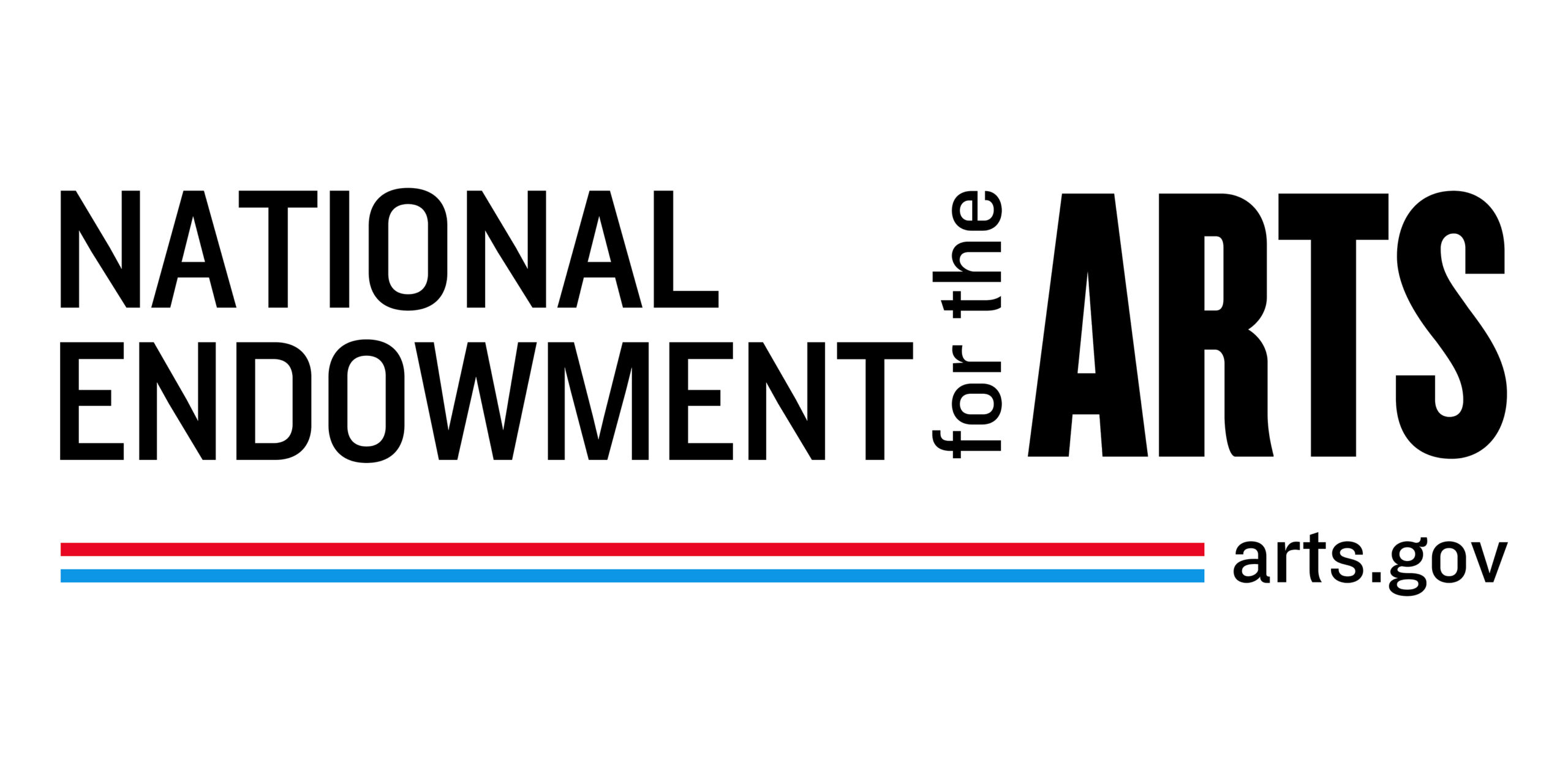
The Most-Read Pieces of 2024
Before we close out another busy year of publishing, we wanted to take a moment to reflect on the unique, resonant, and transporting pieces that made 2024 memorable. The Common published over 175 stories, essays, poems, interviews, and features online and in print in 2024. Below, you can browse a list of the ten most-read pieces of 2024 to get a taste of what left an impact on readers.
*
January 2024 Poetry Feature: Part I, with work by Adrienne Su, Eleanor Stanford, Kwame Opoku-Duku, and William Fargason
“I wrote this poem on Holy Saturday, which historically is the day after Jesus was crucified, and the day before he was resurrected. That Spring, I was barely out of a nervous breakdown in which I had intense suicidal ideation … The moments of quiet during a time like that take on more meaning somehow, reminders I was still alive. And that day, that Saturday, I saw a bee.”
—William Fargason on “Holy Saturday”
The 2024 Author Postcard Auction is open till Dec. 4!
I feel like the only person still sending postcards, but a pantheon of best-selling authors is taking up the practice for a good cause.”
—Ron Charles, The Washington Post
This holiday season, you could hear from one of your favorite authors—writers like Sandra Cisneros, Rumaan Alam, and Stephen Graham Jones—or have them write a missive to the book nerd on your gift list, all thanks to The Common. Our tenth annual Author Postcard Auction runs from November 11 to December 4. Authors will write and send postcards in time for the holidays, which in the past have featured personal anecdotes, original poems, and even doodles, making them a perfect gift for readers. Bid here!
This one-of-a-kind online auction, as featured by The Washington Post’s Book Club newsletter and BookRiot, gives book lovers around the world the opportunity to bid on handwritten, personalized postcards from their favorite writers (plus a few actors and musicians too!). The postcards make great gifts for the literature-lovers in your life.
Burning Language: New And Queer Chinese Voices
Editor’s Note
For the rest of the world, China’s 2008 Summer Olympics—with its $40 billion budget, dramatic “Bird’s Nest” stadium, and the lavish spectacle of its opening ceremony—marked the ascension of a new economic superpower onto the modern stage. Since then, new generations of Chinese youth have grown up into a society constantly rippling with changes, inundated with globalization, technology, and consumerism.

Beijing, China – The national stadium built for the 2008 Summer Olympics & Paralympics
Today, the West views China with curiosity, suspicion, and a sense of enigma and threat. Chinese literature translated into English is still predominantly written by older authors from the period of World War II, Maoism, and the Cultural Revolution. This leaves the up-and-coming generation of Chinese artists, now dealing with wholly different lifestyles and a wholly new set of concerns, all too often neglected.
The Common Magazine Announces 2024-25 David Applefield ’78 Fellow
(Amherst, Mass. August 19, 2024)—Award-winning, international literary journal The Common announced today that Kei Lim ’25 will be the second recipient of the David Applefield ’78 Fellowship. The fellowship, the magazine’s first endowed student internship, was established in 2022 by a group of friends and family of David Applefield, a literary polymath who attended Amherst College and founded Frank, an eclectic English-language literary magazine based in Paris. The David Applefield ’78 Fellowship funds one student intern annually who possesses exceptional editorial and leadership skills.
Among other responsibilities, the Applefield Fellow coordinates the Weekly Writes Accountability program, leads the Level I section of the Young Writers Program for high school students, and provides research and production support for podcasts. In addition, the Applefield Fellow trains and mentors other interns, and organizes events for the Amherst College community.
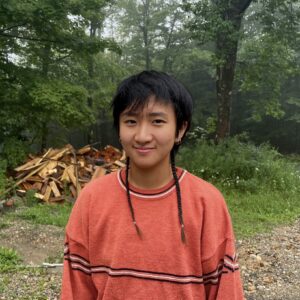 Kei Lim ’25 arrives at the position following two years as an editorial assistant for The Common. They are also Co-Editor-in-Chief of Amherst’s student-run newspaper, The Amherst Student, an instructor for the creative writing nonprofit Cosmic Writers, and have worked in the houses and collections of the Emily Dickinson Museum. Their poem “Evergreen” was published online at The Common.
Kei Lim ’25 arrives at the position following two years as an editorial assistant for The Common. They are also Co-Editor-in-Chief of Amherst’s student-run newspaper, The Amherst Student, an instructor for the creative writing nonprofit Cosmic Writers, and have worked in the houses and collections of the Emily Dickinson Museum. Their poem “Evergreen” was published online at The Common.
Lim thanks the more than 50 friends, classmates, and family of David Applefield who contributed to the fellowship fund for their generosity and trust, as well as the magazine’s staff for their continuous mentorship. “I am grateful to continue supporting the wonderful literary community and mission The Common fosters,” Lim said.
